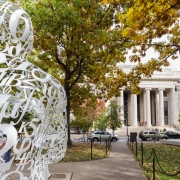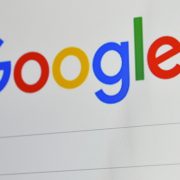Americans can’t seem to agree on much these days. But even amid all the apparent differences that keep us ideologically separated, everyone hates parking tickets. In many ways, these infractions are the great unifier. Parking tickets are a common annoyance that almost anyone can relate to. But luckily, advances in technology are making legal defense resources more accessible than ever.
Seattle resident Dan Lear was understandably frustrated after returning to his vehicle after running an errand, only to see a ticket placed under his windshield wiper. On any other day, Lear may have chalked this up to bad luck, accepted the ticket, and moved on with his day. However, Lear, who is himself an attorney, felt misled by the signage on the street where he parked, which inspired him to fight the grounds on which the ticket was given.
After doing a bit of research, Lear discovered that there were actually companies dedicated to fighting unjust parking tickets. But by utilizing these services, it doesn’t mean that you have paid to retain a group of attorneys. Instead, “lawyer bots” fight your parking tickets for you.
DoNotPay, WinIt, and TurboAppeal are just a few examples of new businesses that are encouraging individuals to challenge the state when they feel they have been on the receiving end of injustice. By helping people fight back against unjust parking tickets and property tax discrepancies online, more people have now have the ability to challenge government overreach, rather than simply lie down and take it. This is huge when it comes to balancing the scales of power.
While each respective company has their own unique platform, DoNotPay, which Lear used, asks users a series of simple question to gauge rather or not there is grounds for a legal fight. Asking whether a parking sign was easy to read or even if perhaps some of the details on the ticket are incorrect, the site then compiles all the information you provided into a letter. Serving as a formal legal defense that can be mailed or uploaded online, users now have a legitimate case against the state.
As if these services weren’t enough to entice us all to fight the next parking ticket we may receive, the services available through DoNotPay are free of charge, making legal defense readily available to anyone with a wifi connection. Other services, however, do charge a small fee. Already, DoNotPay has helped dismiss over 450,000 parking tickets in the United States and the United Kingdom alone. This accounts for about $13 million in fines that individuals did not have to pay to local governments. In fact, when it comes to the success rate of DoNotPay, their users win their cases more than 50 percent of the time. For those who try and fight their tickets without the use of these types of services, the success rate dropped to around 21 percent in New York City and 35 percent in California.
The creator of DoNotPay, Joshua Browder, is a hero among individualists. However, local governments have started referring to him as the “Robin Hood of the internet” by the BBC. But before anyone starts feeling sorry for the government, Browder is quick to remind us that tickets are, “used as a source of revenue, which is wrong, and something I’m trying to change for the longer term.” He also admitted that when it comes to local governments they “generally don’t like me.”
Browder’s model is so appealing to so many people, that it was able to raise $1.1 million of funding. Currently, the site exists primarily to help users fight parking tickets, but the long-term goal is to expand services into other legal spheres. For example, Browder would like to help users fight property taxes and even file for divorce without having to retain costly attorneys.
What is, perhaps, most fascinating about this project is the decentralization of the legal sphere. In addition to this type of tech, blockchain technology is also getting rid of the need for attorneys. By using algorithms to enforce contracts, blockchain technology is making lawyers in this realm almost entirely irrelevant. But, it is also giving individuals more access to legal tools they may not have been able to afford on the traditional market.
All in all, this technology is allowing individuals to live a more free, decentralized life, which is truly the key to individualism.












